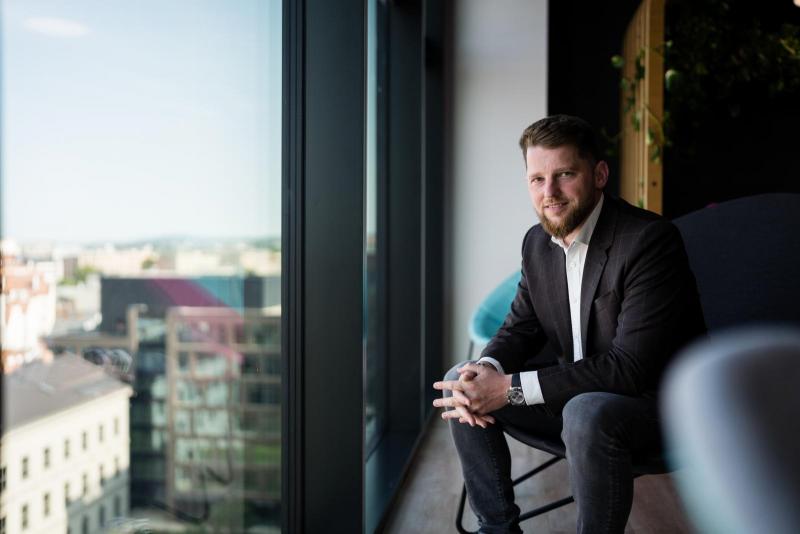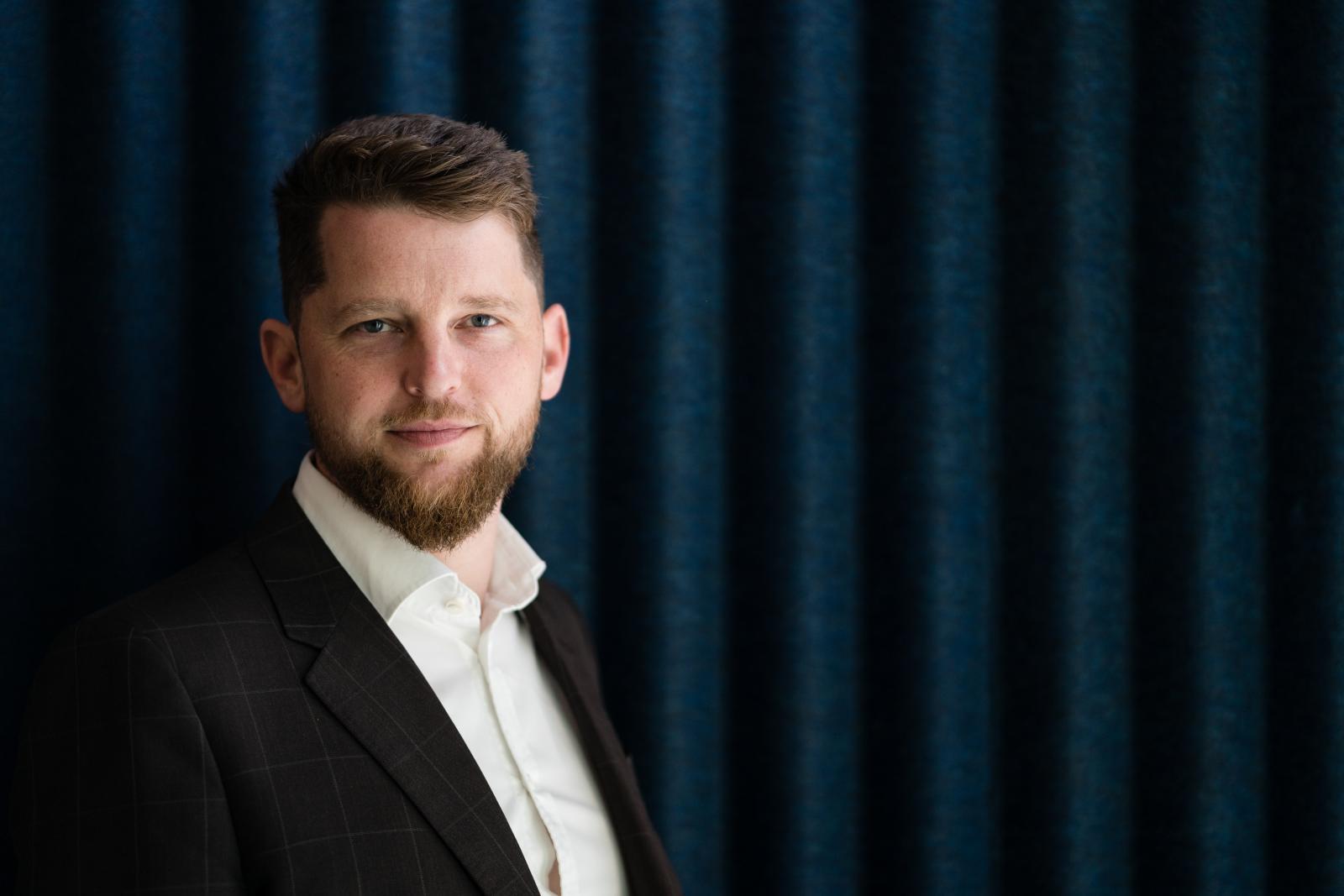Topic
Sustainable energy projects are not a luxury. They can save and make money

How to turn sustainable energy into a source of profit? The energy specialists from the PKV firm demonstrate this to automakers, banks and shopping centres. The company was founded 10 years ago by two graduates of FCE (Faculty of Civil Engineering) BUT (Brno University of Technology) – Ondřej Vaněk and Jiří Pech. It is the largest team of energy specialists in the Czech Republic, today they employ over 100 experts, by the end of the year they will expand their ranks to 200. Their orders are increasing because of the energy crisis. In fact, their solutions are not only ecological but also economic.
Energy is a key issue today – how is it currently affecting the industry?
Very significantly. We can see that in the demand from car companies that would not have considered installing huge photovoltaic power plants just 3 years ago. These are investments in the order of hundreds of millions of crowns. We now have several such projects on the table and they are coming to realization. The current energy crisis is moving not only across Europe, but the whole world – and the topic of sustainability is directly linked to this.
But profitability and sustainability are seen as discontinuity in business. Isn't that right?
Not at all, projects can be efficient in terms of economics and sustainability. But the contradiction results from the negative PR of the Green Deal and similar environmental issues, which are mainly misrepresented by politicians or sometimes not understood at all. There is a view that what is green is bad. It is certainly not true that green projects are equivalent to a non-refundable investment. On the contrary, they can also save money. But it needs to be approached rationally and sensibly.
Has the rise in energy prices affected the demand for energy-saving technologies?
Yes, specifically the boom in photovoltaics – last year we saw a 400% increase in demand for photovoltaics compared to 2021, when the energy crisis started. It's a quick and cheap cost-saving measure with a big effect. That is why last year, less than a hundred companies and private individuals were established to deal with photovoltaics. Probably it wasn't a good step, because a number of them are starting to go bust.
With the current drop in electricity prices, customers are already hesitating a bit when choosing photovoltaics. They wonder if maybe they won't need it after all. But photovoltaics will be very economical in the future. Germany is shutting down all its nuclear power plants. In addition, electricity consumption will grow – whether due to the development of electromobility, smart homes or the increasing need for comfort. This week, a ČEPS (Czech Transmission System Operator) study was released confirming that within 5 years we will be importing electricity from Germany or France. Electricity prices will thus continue to rise.
What mistakes do companies most often make in energy management?
They don't have data and they don't track their consumption. We place great emphasis on this – what you don't measure, you don't control. Clients can't identify where the weak spots are, they have no proper invoices or project documentation. That's the reason why we designed software that allows monitoring and analytics of electricity, gas, heat and water consumption. Careful preparation allows us to suggest effective cost-saving measures, often of a non-investment nature.
The second most common mistake is that clients underestimate the project preparation for energy saving measures. They immediately set about implementing partial themes – we want photovoltaics, so let's build them right away. But it doesn't solve wasteful technologies in the company – old lights, uninsulated heat distribution systems or an old boiler. We need to look at whether it is more efficient to optimise something other than just putting panels on roofs that only cover 5% of the total consumption.
So you do it differently?
First, we do an energy concept – we propose savings that may be economically interesting for the client. The savings file will then be used for energy management. We start to gather and evaluate data and try to confirm the original proposal. Then we set goals – whether the company wants to reduce energy consumption by 30% or its carbon footprint. Then we come up with concrete proposals on how to make it happen. We can design photovoltaics, air conditioning or other energy-saving measures. We will then show them how to finance the project – either with state or union funding. We guide the client through the actual implementation and after some time we evaluate whether our solutions have helped to meet the original goals.

What energy savings can you ensure for companies?
In the case of photovoltaics, this is around 30-40% of the energy price. We also have a client where the savings have reached up to 60%. For one large construction company, we even offered non-investment saving measures, where the client didn't need to invest anything in additional technologies. All he had to do was optimize the contract he had with the supplier and he saved 2.5 million a year.
It showed the ills of Czech companies – even large manufacturing companies do not employ power engineers. A person who would deal with quotations and energy management of buildings. It makes sense because nobody used to care much about energy prices. Especially compared to the cost of such an employee's salary. But thanks to the energy crisis, it has become an issue.
What sustainable technologies – besides the already mentioned photovoltaics – are most interested in the industry right now?
Companies are willing to invest in technologies that have a 5-7 year payback. The audit proposes various cost-saving measures with an estimate of the return. The greatest interest was in photovoltaics due to electricity prices. And, given the situation with Russian gas, alternative heat supply – for example, by means of a deep-water or surface pump. But there is also a demand for energy-saving lighting with motion sensors. On the other hand, there is less interest in window insulation, which is a high investment with a low return on investment.
Together with the founder Jiří Pech you graduated from FCE BUT. Does sustainability have a place in construction today?
The construction industry is a bit specific, it puts little emphasis on project preparation. It is mainly concerned with building everything as cheaply as possible. The money is not invested in the preparation of projects, but in the construction itself. This is the main driver of construction companies and developers. However, the first sustainably minded developers are already appearing and they want to offer their future customers premium properties.
Overall, the situation is gradually changing for the better, and the energy crisis has also contributed to this. It is also important to prepare future graduates of the construction industry for this. We cooperate closely with FCE BUT and organize lectures on energy saving and sustainability. Many of our graduates are also our employees.
(mar)
Greener brickmaking: New technologies from FCE BUT reduce carbon footprint
Soil erosion will be prevented by strip crop rotation technology
BUT experts address climate challenges, floods, and the future of Czech water
Software as a bachelor thesis helps with soil erosion research
Surveyors from BUT save cultural monuments